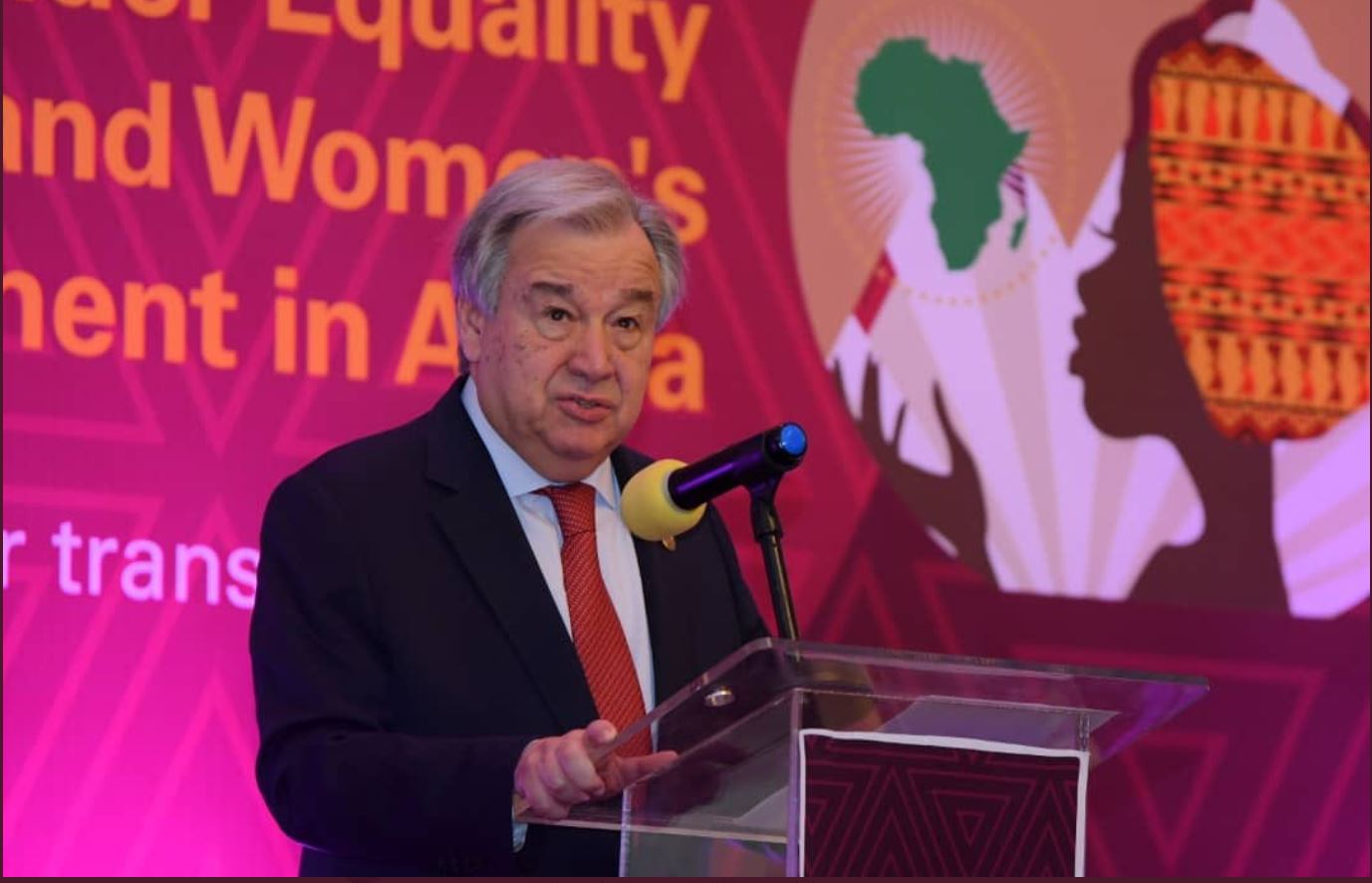The UN Secretary General, António Guterres, has warned that progress remains slow and uneven in Africa’s efforts to eradicate poverty and end exclusion.
In his remarks to the 33rd Ordinary Session of the Assembly of the African Union Summit in Addis Ababa Sunday, Mr. Guterres called for the scaling-up of efforts to eradicate poverty saying this remained an essential social and moral obligation for humankind.
He commended the African Union for completing the first report on the country-level implementation of the ten-year implementation plan of Agenda 2063.
“This is a key milestone on the path to realizing the Africa we want,” he said, adding Agenda 2063 and the 2030 Agenda for Sustainable Development had galvanized Africa’s governments and their development partners on poverty.
“We can point to significant improvements in living standards, including access to quality education, health care, food security, basic social services and infrastructure. But progress remains slow and uneven when it comes to eradicating poverty and ending exclusion.”
One key to poverty eradication, Mr. Guterres said, was the promotion of gender equality and the rights and meaningful engagement of women and girls.
“We have seen advances across Africa, but, as is the case everywhere in the world, much remains to be done,” he said.
The UN Chief commended the African Union for making Silencing the Guns a prominent part of its work for 2020.
“I can guarantee the full support of the United Nations for this landmark initiative,” he said.
“Ultimately, silencing the guns is not just about peace and security but also inclusive sustainable development and human rights,” he added.
Mr. Guterres highlighted three challenges of particular urgency for the continent, which are making further inroads against poverty through a critical Decade of Action to deliver the sustainable development goals; tackling the climate crisis; and silencing the guns.
The UN Secretary General hailed the United Nations strategic partnership with the African Union saying it was of paramount importance.
“Since I took office, I have sought to build stronger ties between our two organizations, based on shared values, mutual respect, common interests and, if I may, my own deep personal commitment to Africa’s peace, prosperity and well-being and my conviction that Africa’s challenges can only be solved by African leadership,” he said.
“We see the fruits of those efforts in what we have agreed and achieved together.”
Mr. Guterres told the African leaders that he has made gender parity a centerpiece of UN reform and gender equality and the advancement of women a top priority in all the UN does.
“Peace, social cohesion and sustainable development require women’s contribution and leadership. It is our joint responsibility to ensure that women are not excluded from critical decision-making in peace processes and post-conflict governance,” he said.
He said it was also necessary to engage and empower Africa’s youth.
“In its 75th anniversary year, the UN is committed to listening to youth and all actors to determine how to achieve the sustainable development goals and the future we want.”
On the climate crisis, he said temperature rise in Africa was twice the global average resulting in devastating destruction by cyclones and related climate-linked crises, including a locust infestation currently causing misery across vast swathes of East Africa.
“Major emitting countries and industrial sectors have a particular responsibility. If they don’t deliver, all our efforts will be in vain. We need more ambition on mitigation and, especially for Africa’s sake, more ambition on adaptation and financing to build resilience of African countries and communities and allow for effective recovery and reconstruction,” he said.
“COP25 was a disappointment. It is imperative that we work together to make COP26 a success so Africa can receive the support and resources it needs to minimize and adapt to climate impacts and develop in a sustainable manner.”
Mr. Guterres also spoke about a number conflicts on the African continent and called for international support to end them, in particular in the Central African Republic.
The UN Chief said in Burkina Faso, Mali and Niger, the increasing number and complexity of terrorist attacks on both civilian and military targets demonstrated the need for a more robust and integrated response with a focus on cross-border issues.
Calling for an end of the Libyan conflict, Mr. Guterres emphasized that “only a political solution, nationally-owned and nationally-led, will bring peace in Libya and that foreign intervention in the conflict will only make things worse. An immediate cease-fire is absolutely essential”.
The theme of the AU this year is “Silencing the Guns: Creating Conducive Conditions for Africa’s Development”.





